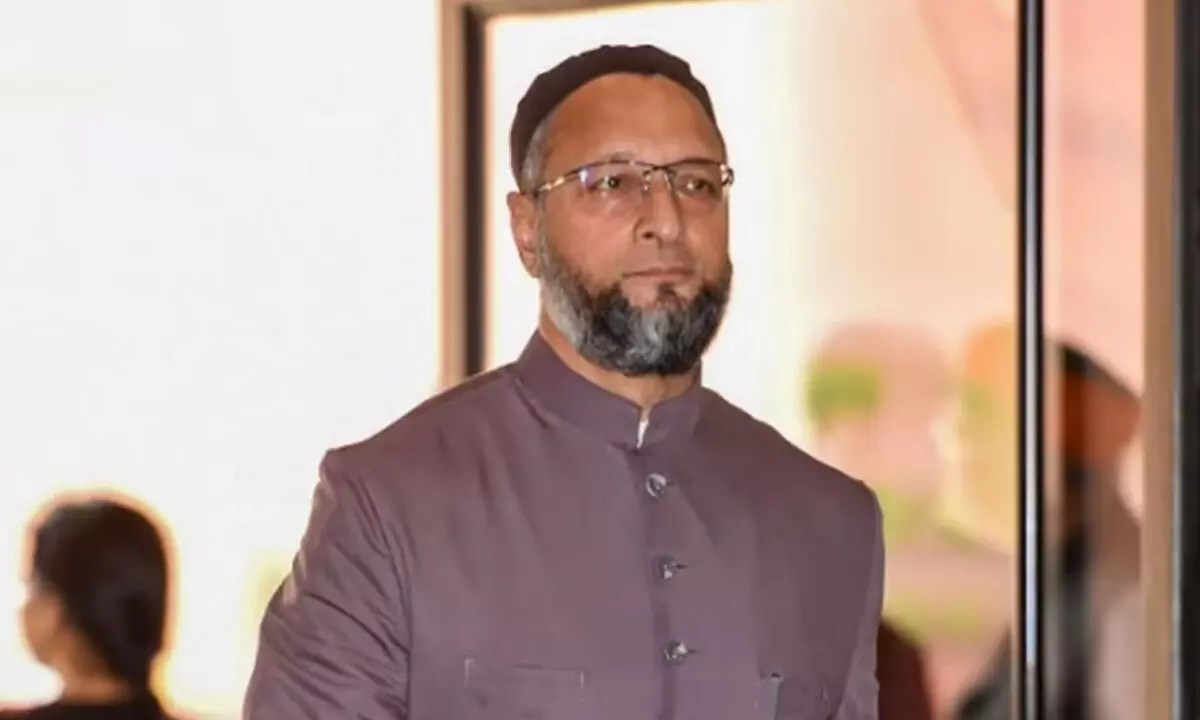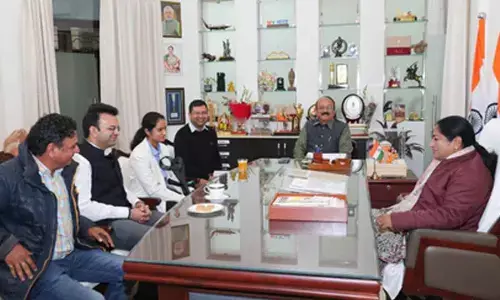AIMIM president Asaduddin Owaisi moves SC seeking stay on Citizenship Amendment Rules
Share :

AIMIM president Asaduddin Owaisi has moved the Supreme Court seeking a stay on the implementation of the Citizenship Amendment Rules till the apex court disposes of the petitions challenging the constitutional validity of the Citizenship (Amendment) Act, 2019.
New Delhi: AIMIM president Asaduddin Owaisi has moved the Supreme Court seeking a stay on the implementation of the Citizenship Amendment Rules till the apex court disposes of the petitions challenging the constitutional validity of the Citizenship (Amendment) Act, 2019. The Centre had on March 11 paved the way for the implementation of the Citizenship (Amendment) Act, 2019, with the notification of the relevant rules, four years after the contentious law was passed by Parliament to fast-track Indian citizenship for undocumented non-Muslim migrants from Pakistan, Bangladesh and Afghanistan who came to India before December 31, 2014.
Owaisi, one of the petitioners who have challenged the validity of certain provisions of the Citizenship (Amendment) Act, 2019, has now filed an application in the top court seeking a stay on the implementation of the Act and the 2024 rules till the final disposal of the petitions. He has also sought a direction that "no applications seeking grant of citizenship status be entertained or processed by the respondents herein under section 6B of the Citizenship Act, 1955 (as it stands amended by the Citizenship (Amendment) Act, 2019) during the pendency of the proceedings".
"It is submitted that it is the case of petitioner in the instant writ petition that the Amendment Act has an unholy nexus with the National Register of Citizen 'NRC' exercise that has been concluded in Assam and is sought to be initiated in the rest of the country," the application, filed by advocate M R Shamshad, said. The application says it is a well-settled law that the apex court has the power to grant stay of a statutory provision as well as stay the rules issued under the said statute and hold its operationalisation in abeyance while adjudicating the constitutional vires of the provision or the enactment.
"Moreover, no prejudice shall be caused to the respondents (Centre and others) in the event stay of the implementation of the Amended Act and the 2024 Rules is granted by this court as the Union of India itself has not operationalised the Amendment Act for over four (4) years," the application said. The apex court had on Friday agreed to hear on March 19 the pleas seeking a direction to the Centre to stay the implementation of the Citizenship Amendment Rules, 2024 till the disposal of petitions challenging the constitutional validity of the Citizenship (Amendment) Act, 2019.
The Indian Union Muslim League (IUML), a Kerala based political party, and three other petitioners have also filed interim pleas after the Centre implemented the Citizenship (Amendment) Act, 2019 by notifying the rules. The application filed by the IUML has sought the court's direction to ensure no coercive action is taken against people belonging to the Muslim community pending adjudication of the writ petitions.
The Democratic Youth Federation of India has also moved the apex court seeking a stay on the rules. With the unveiling of the rules on March 11, days ahead of the announcement of the Lok Sabha elections, the Modi government kicked off the process of granting Indian citizenship to persecuted non-Muslim migrants -- Hindus, Sikhs, Jains, Buddhists, Parsis and Christians -- from Pakistan, Afghanistan and Bangladesh. The rules came into force with immediate effect, according to a gazette notification. The contentious CAA had sparked protests in various parts of the country in late 2019 and early 2020 over alleged discriminatory provisions. While refusing to stay the operation of the law, the apex court had on December 18, 2019 issued notices to the Centre on the pleas.













